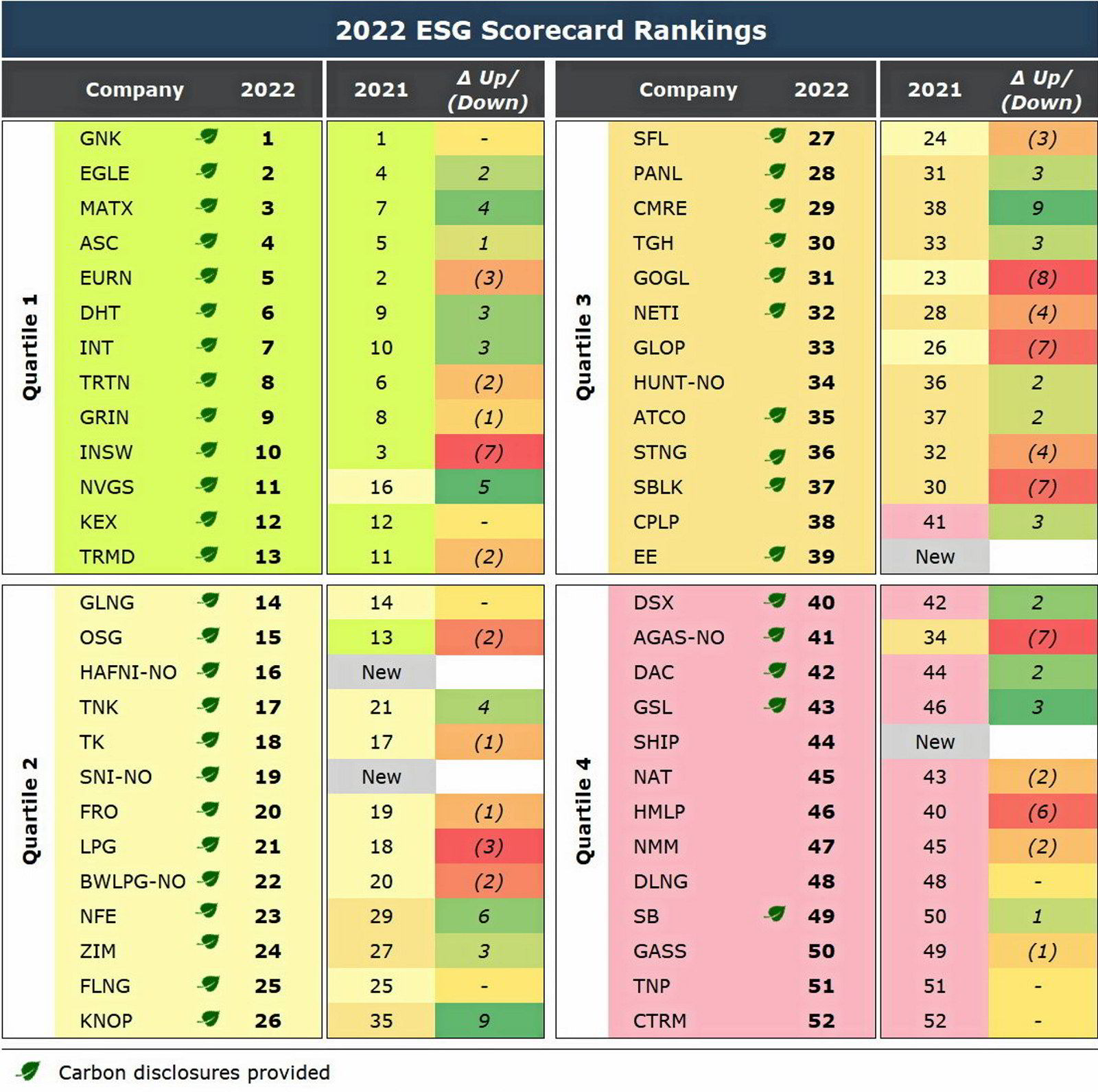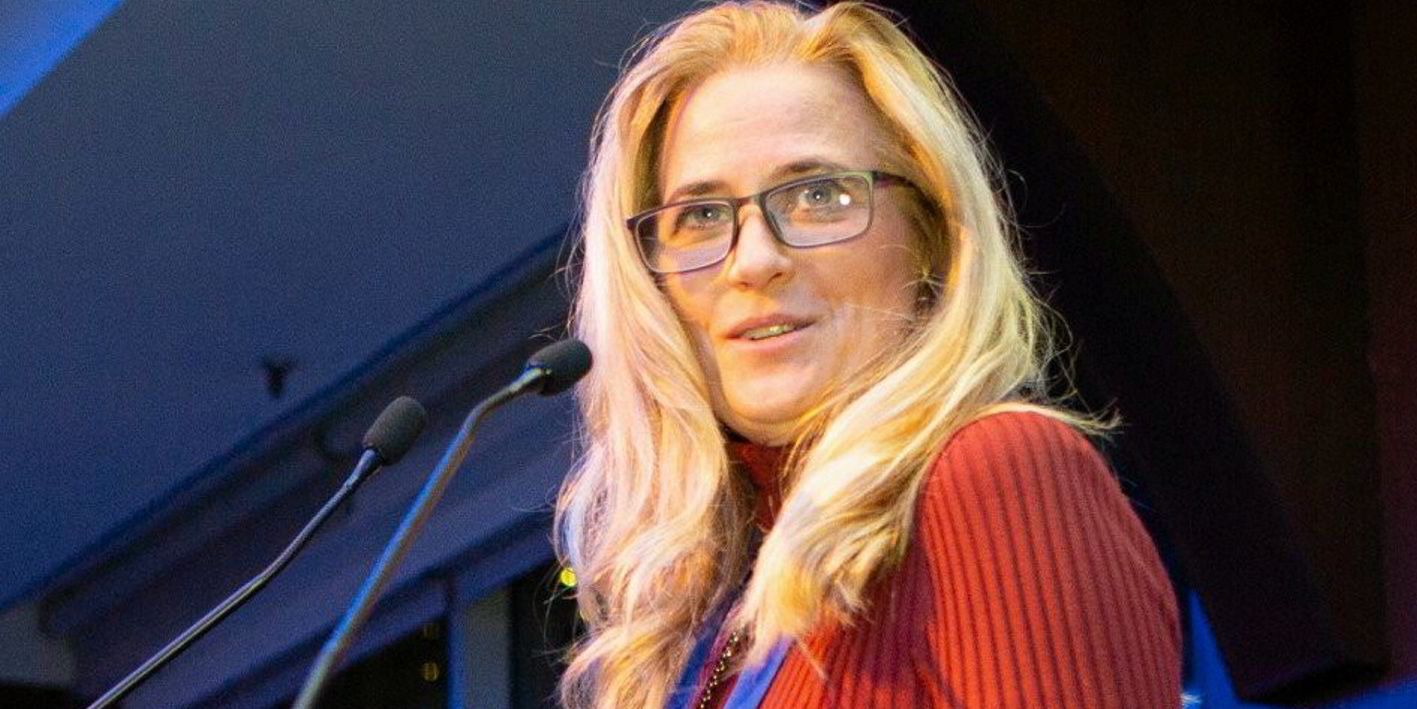Shipping is moving in the right direction when it comes to companies publicly reporting their carbon emissions, to the point where the list of holdouts can almost be counted on two hands.
But that shrinking list of laggards contains some major names, according to the 2022 Webber Research & Advisory ESG Scorecard released on Thursday.
Overall 79% of the 52 companies surveyed by Webber did some public reporting, a step up from the 71% who disclosed in 2021.
But those not making the grade included the likes of venerable public companies Navios Maritime Partners, Nordic American Tankers and Tsakos Energy Navigation.
Also missing the cut are giant container ship lessor Atlas Corp, Harry Vafias-led LPG carrier owner StealthGas, Greek bulker owner Seanergy Maritime and fast-growing Cyprus bulker and tanker owner Castor Maritime.
Atlas and Dynagas LNG are both noted for making progress toward completing a disclosure.
Other misses come from LNG carrier owner Excelerate Energy, peer Hoegh LNG Partners and Oslo-listed tanker owner Hunter Group.
There is significant overlap between those failing to report and those listed toward the bottom of Webber's overall ESG rankings. Carbon reporting accounts for 20% of the overall ESG score.
Castor, Tsakos, StealthGas, Dynagas, Hoegh, NAT and Seanergy are all in the bottom quartile of the Webber tables, which measure environmental, social and governance (ESG) standards.
Webber's carbon disclosure criteria remain the same as when first incorporated in 2020, when only 42% of companies were compliant.
The analysts look for reporting of annual efficiency rate (AER) and Energy Efficiency Operational Indicator (EEOI) for conventional shipowners, aligning its standards with those in the Poseidon Principles, the green-lending protocols drafted by a coalition of top banks.
Webber notes that beginning in 2023, the International Maritime Organization will require owners to report their Energy Efficiency Existing Ship Index (EEXI) and Carbon Intensity Indicator (CII).
Criteria may change
“Both metrics are derivatives of AER and EEOI, which we already evaluate within our scorecard, however we may include these factors directly when we reconfigure our broader carbon factor, as soon as next year,” Webber reported.
“We believe establishing sector benchmarks and/or tracking company-specific year-over-year changes are among the most likely next steps within our model’s evolution, along with the potential inclusion of additional disclosures.”
As TradeWinds reported on Thursday, the overall winner in Webber’s ESG tables was New York-based bulker owner Genco Shipping & Trading for the second straight year, with Connecticut-based peer Eagle Bulk Shipping grabbing second.






